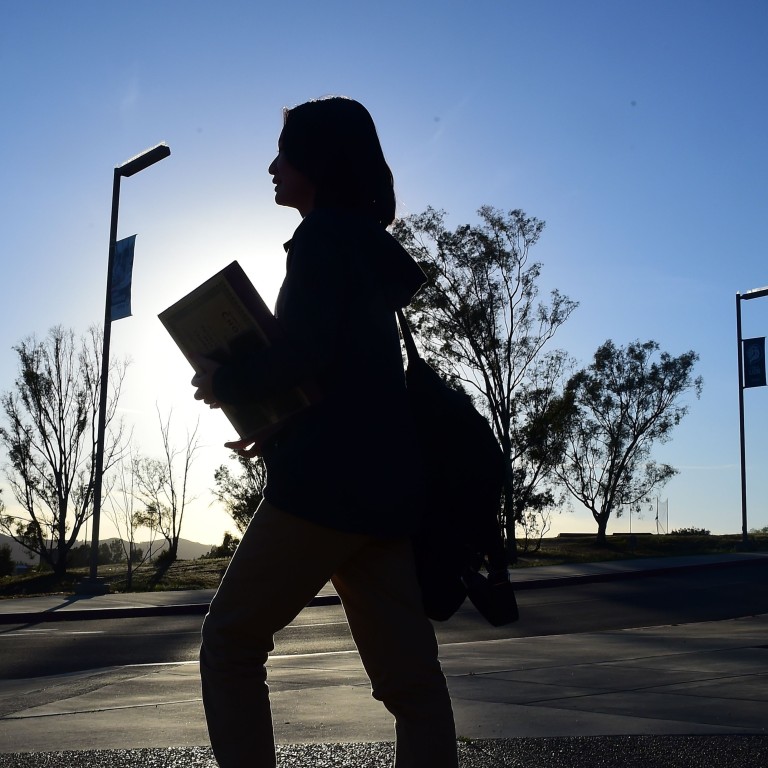
Perceived anti-China bias and dearth of jobs have Chinese science students in US mulling their options
- Some extend graduate studies to boost chances of winning jobs or US citizenship at a time of uncertainty
- Reports suggest Chinese attendance at US schools is declining after years of growth
Caught in a geopolitical tug of war between China and the US as job opportunities for them dwindle in both countries, Chinese science students at American universities are wrestling with a dilemma: should they stay, or go?
Several of these students – who declined to let their names be used for this article for fear of repercussions – said in interviews they felt anxious about what they perceived as an increasingly hostile climate towards Chinese students in the US.
Amid employment and visa uncertainty, some said they had extended their graduate studies’ time limits to improve their chances of winning jobs or US citizenship.
“If most of the Chinese talent is expelled, the US is doomed, without a doubt,” said a master’s student in information systems at the University of Florida, who asked not to be identified.
“Most [tech] companies like Microsoft are complaining big about this.”
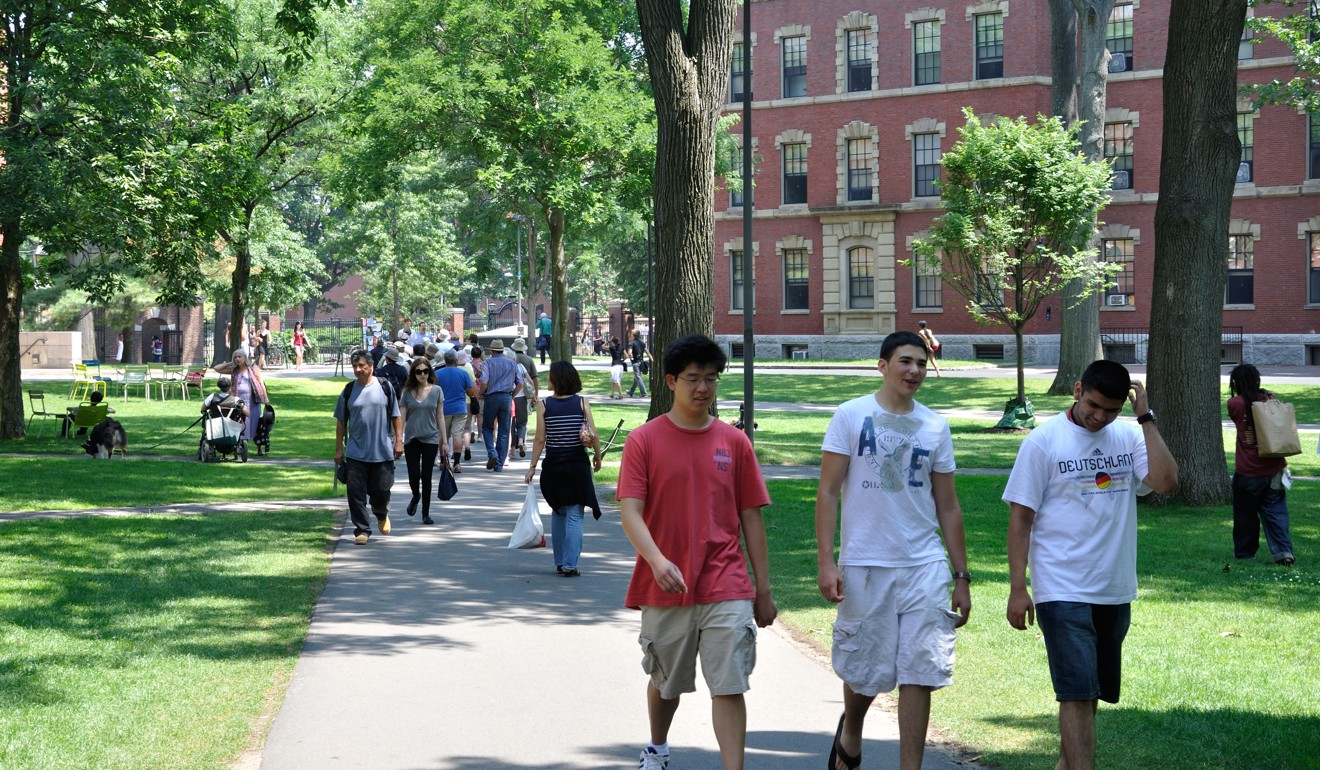
The graduate of a top Chinese university, who said he would consider returning to his home country only as a last resort, said he had decided to get a PhD to extend his US stay in support of his dream of obtaining American citizenship.
The Trump administration’s tough China policies have added to the difficulties some Chinese students were having in adapting to Western schooling in recent years, resulting in thousands of expulsions.
Since the start of the China-US trade war last year, Washington has tightened visa restrictions for graduate researchers in hi-tech fields such as robotics, aviation and artificial intelligence. Several Chinese citizens working in these fields in the US have been arrested for allegedly spying on engineers and scientists.
Chinese students in US told to speak English: more than just racism?
US President Donald Trump’s far-right political adviser, Stephen Miller, last year reportedly tried to get the administration to scrap visas for Chinese nationals who wanted to study in the US, to combat what they called the threat of Chinese espionage.
In October, vice-president Mike Pence warned of China’s growing influence on US university campuses, naming the Chinese Students and Scholars Association, which has organisations at 150 American campuses, as an attempt by Beijing to enforce the Communist Party’s political line over Chinese students abroad.
Chinese students make up about 30 per cent of America’s international student population – by far the largest group in the category – and boosted the US economy by US$42 billion last year.
More than 360,000 Chinese nationals currently study at American higher education institutions.
Trump’s policies, however, may well be reversing the influx of students from China – and other countries – into US schools, according to figures cited by mainland media.
US tutor steps down in row over Chinese students not speaking English
China Daily reported that in 2017-18, the number of Chinese students going to US schools, particularly in undergraduate programmes, dropped for the first time in recent years. The decline appeared to be continuing when this school year started, according to the report. A year earlier, the growth rate had slowed from previous years.
The decrease comes with foreign graduate student attendance at US schools generally shrinking, after years of increases. The National Science Board has said the number of international graduate students coming to the US fell 6 per cent in the 2016-17 school year, with the drop mostly concentrated in computer science and engineering programmes.
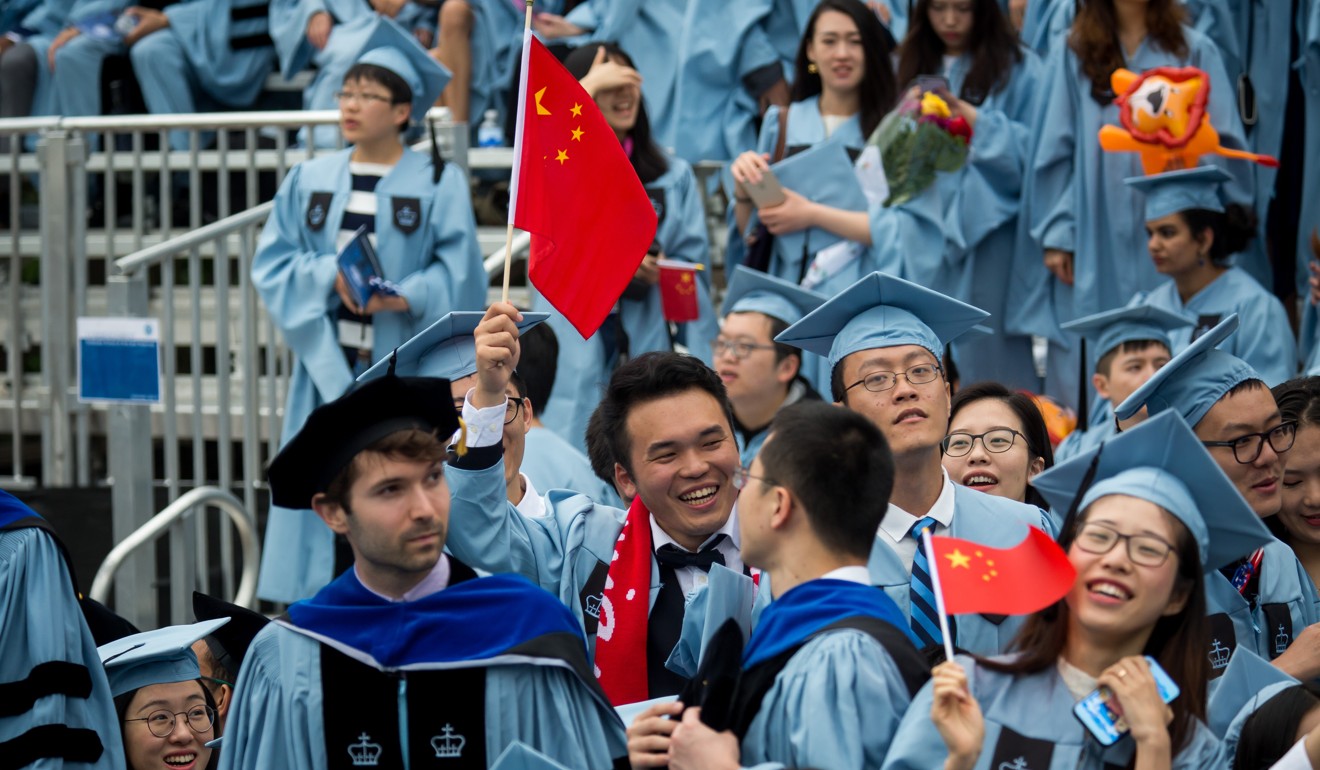
Although the reported decline in Chinese student enrolment at US schools could be blamed on the shifting, uncertain political climate created by Trump’s China actions, it may take several years for evidence to emerge that conclusively proves fewer Chinese students are studying at American schools, according to Eric Fish, author of China’s Millennials: The Want Generation.
“A lot of students I talk to say they had hoped to stay and work in the US for several years, but have become resigned to the fact that that probably won’t be possible,” he said.
“That, in turn, is putting off future potential students from coming in the first place. So I think the big effects of the trade war and greater political environment for Chinese students will perhaps be felt more in the coming years than at present.”
Why Chinese students are flocking to Thai universities
If potential Chinese arrivals already were having second thoughts about studying at US schools, their resistance to the idea hardened at the news that the Trump administration had debated banning visas for Chinese students over espionage concerns.
It “really freaked out a lot of the parents” at a top Shanghai education consultancy, Fish said.
“In previous years, US schools have far and away been the top choice for these students, but lately they’ve been very quickly shifting their interest to Canadian and British universities.
“It’s becoming seen as risky to come to the US when you’re not sure you’ll be able to stay,” he said. “The visa situation has always been frustrating for these students, and it’s only becoming worse.”
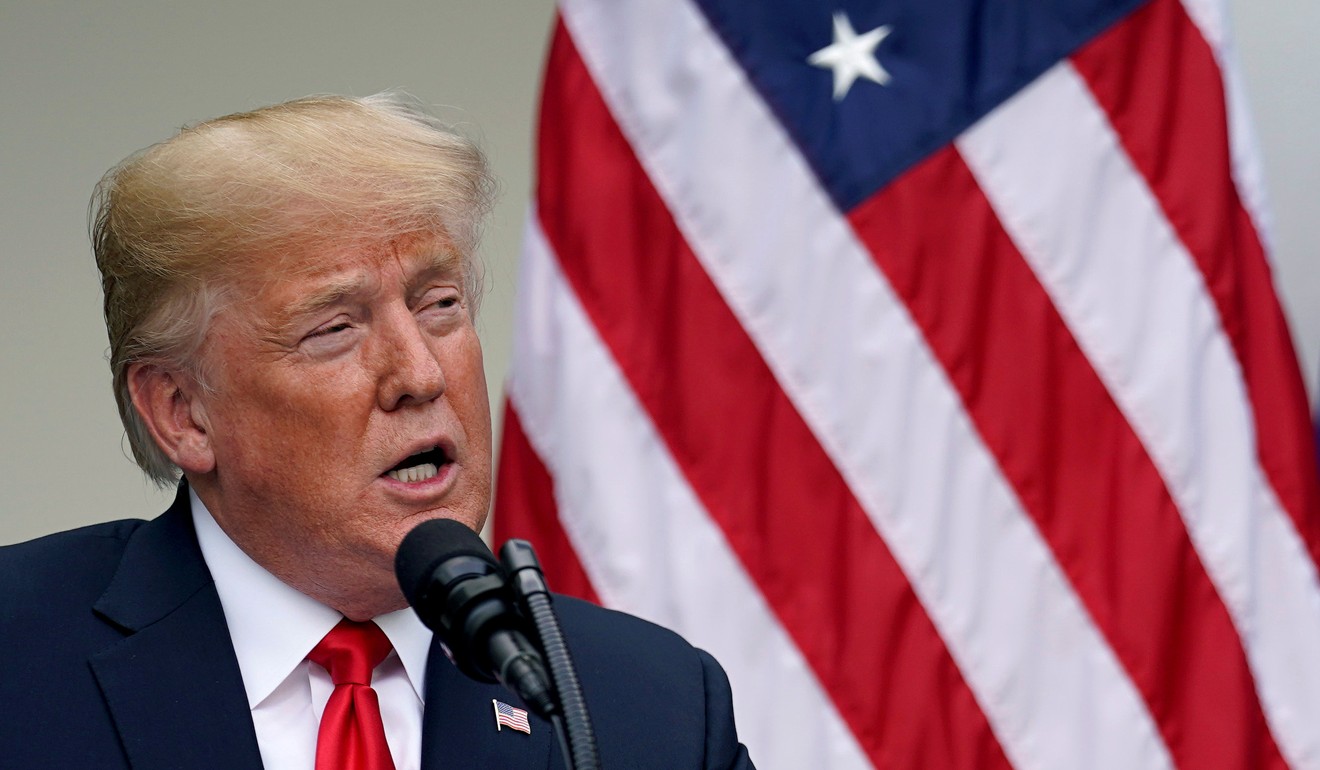
Forty-two per cent of Chinese international students who took part in a 2018 survey conducted by Indiana’s Purdue University said their impressions of the US had become more negative. When the survey was conducted in 2016, the number of students saying the same thing was 29 per cent.
How China’s economic woes are smashing its top graduates’ dreams
Another student who declined to give his name was among the lucky ones to find a job. The postgraduate information technology student at a college on the US East Coast will conclude his studies in a few months to begin working for a US-based tech company – a coveted job among students specialising in the sciences.
“As the policy environment had began to get worse when I started studying abroad, it didn’t make a very big difference to my plan,” he said.
“But the potential policy risks did make it much harder for international students to find a job, compared with a few years ago.”
Another student who declined to be identified said he knew at least two Chinese master’s students in the US who had opted to apply for PhD programmes instead of trying to land a job. The students see moving into the PhD track as a way to accumulate US experience and improve their chances of getting a job in the country afterwards.
“More students, including myself, have even considered returning to China as a plan B if we can’t find a job in the US, and some of them are searching for jobs in China simultaneously,” the student said.
But the job market for new graduates on the other side of the globe is not much better, as Trump’s trade war begins to cause sweeping lay-offs and hiring freezes in China’s tech industry.
“The cases of visas being cut short or rejected are quite common in recent years,” the student who had got a job in the hi-tech industry said. “Even the parents of one of my classmates, who planned to attend the graduation ceremony, were rejected three times and never got a visa.”
But a biomedical sciences PhD student at a medical college in Texas said some international science, technology, engineering and mathematics students were having to deal with tighter visa scrutiny even before Trump took power.
“The visa scrutiny period would be one month, and they would only give me one year after it was approved,” said the student, who declined to give her name.
“I think the most perplexing issue for me and my fellow students is the visa application process, but I don’t think it has much to do with Trump,” she said.
“I haven’t heard of anyone experiencing visa issues in my major and at my school, at least.”

Hoping to stay in the US long-term, she said she remained optimistic that she would be able to find a job in academia or the private sector, even though she had heard that obtaining a working visa was “very hard”.
“For finding a job, I think that personal capabilities are even more important [than potential visa issues], even though international students face a lot more competition and pressure than Americans and those with green cards,” she said.
“But I know a lot of international students who have managed to find jobs without any problems.”
How the paranoia of Sino-US rivalry is affecting Chinese students
Zion Tam, an education consultant at Foundation Global Education in Hong Kong, said he expected students and families would pass on applying to US schools, “especially when they start seeing more student visa applications being rejected”.
He said his Hong Kong and mainland Chinese clients remained bullish on the US, because of the larger concentration of top-ranked schools there.
Other popular education destinations for Chinese students included Britain – for the universities of Oxford and Cambridge – as well as Canada, Australia and Switzerland, he said.
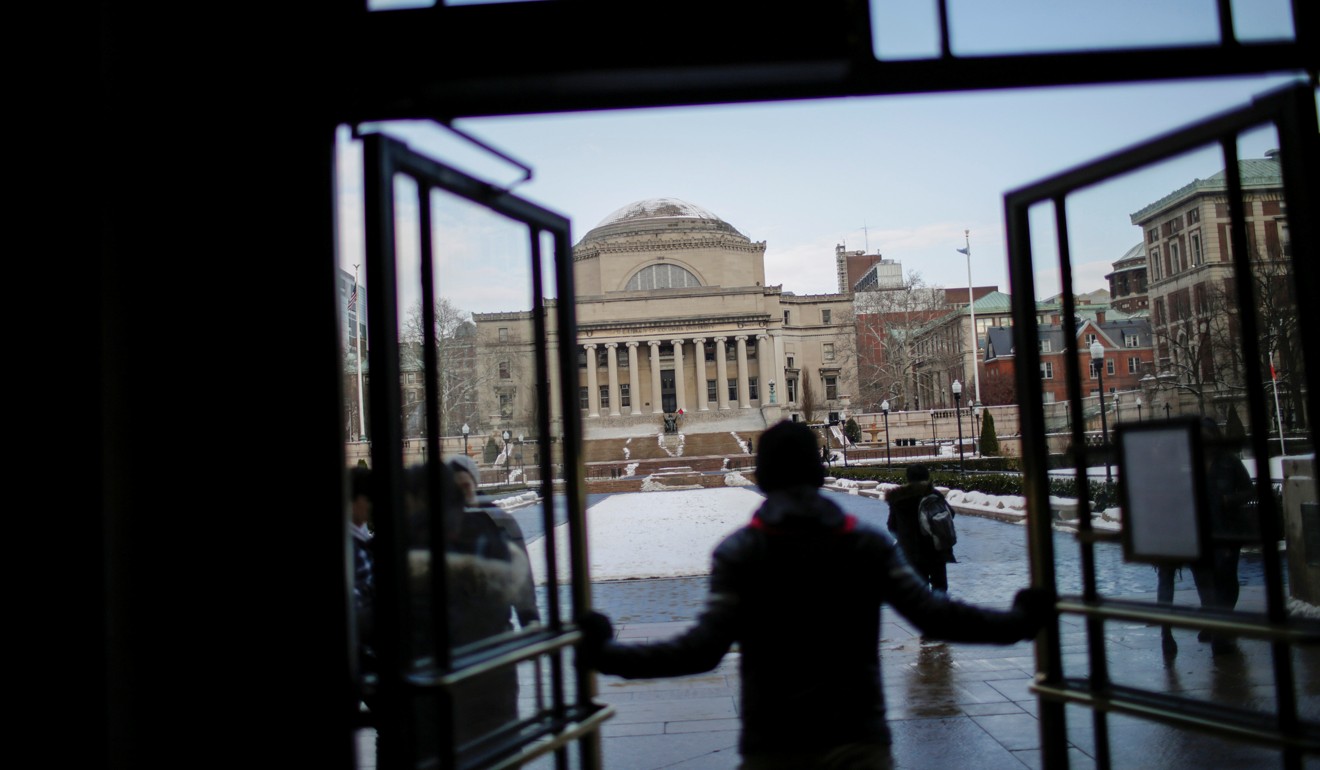
Julia Gooding, China director of international education at BE Education, echoed that view, saying Chinese families had become “more cautious and uncertain” about only prioritising the US as a study abroad option.
“But for high-achieving students and for many families that are hyper-focused on global rankings, the US is still typically their first choice,” she said. “If a Chinese student is aiming for the US News and World Report’s Top 30 universities, it will take more than a trade war to scare them off.
“For these kinds of students and families, their attitude is that history is long and this trade war shall pass, but we only have one shot at [a brand name US university],” she said.
How English testing is failing Chinese students
Gooding said age differences drove Chinese students’ concerns. For example, parents of younger children were more reactive to “perceived safety issues related to school shootings, and an increasingly anti-immigrant climate as evidenced by incidents of discrimination against Chinese students”, she said.
Last month, a professor at Duke University, a private research university in the southeastern US state of North Carolina, apologised for sending emails that warned Chinese students against communicating in their native language and urged them to speak English.
The professor, who headed the biostatistics master’s programme in the university's school of medicine, sent the email to first and second-year students in the programme, after faculty members complained to her about international students speaking Chinese in student lounge and study areas.

